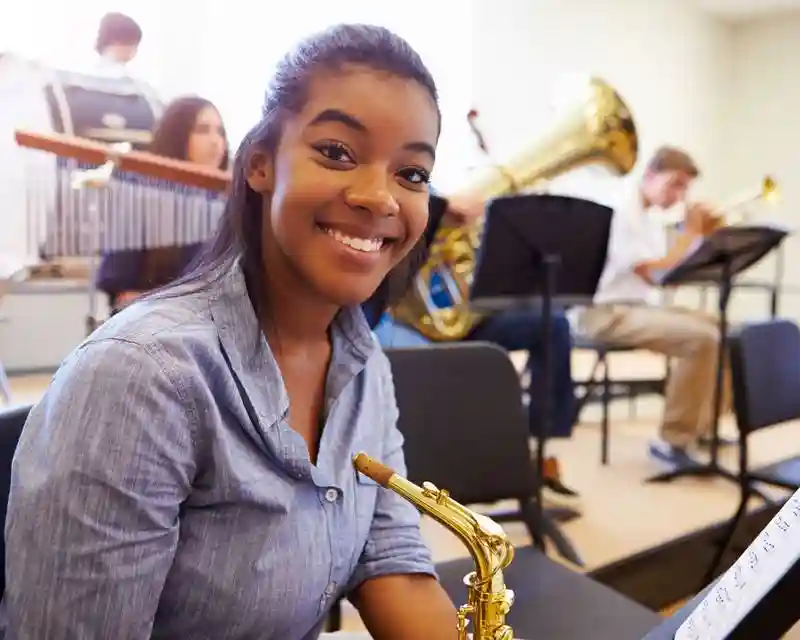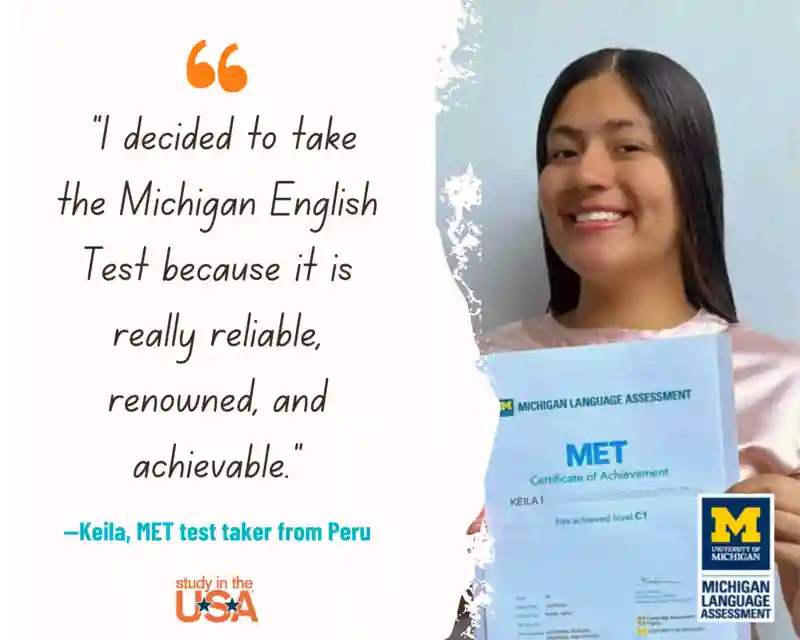International Student Musicians: Successfully Complete the Application and Audition Process

A guide for counselors, teachers, and family members supporting students through the application and audition process
International students applying to schools in the United States are required to submit application materials such as financial disclosures, language proficiency, and passport information. However, applying to schools in the United States as an international student musician requires even further steps before the application is complete.
Below are a few tips that will assist you in navigating this exciting journey.
Create a list of possible colleges and universities
As you decide which schools will be the best match for you and your musical skills, consider the amount of time you expect to devote to making music. Begin with the question: Do you want to major in music or do you want to participate in music as an extracurricular activity? Then determine which collegiate programs allow participation at the desired level.
In general terms, the differences between collegiate programs are:
- Conservatory of Music: Learning that is devoted to the study of music. Conservatory programs differ, but in general they focus on music instead of general education courses or the liberal arts. Conservatory curriculums tend to focus on music performance, theory, history, and ensembles.
- School of Music: A large music school devoted to the study of music. Schools of music typically have a larger number of programs for students to choose from, including music education, music performance, music therapy, music theory, composition, music business, music media, and defined areas within performance.
- Music department: Typically a smaller area of study that is within a larger college. Music departments may be similar to a school of music but have fewer resources and degree programs.
- Music program: A smaller program that is part of a performing arts department. Most music programs will not have teachers on each instrument or offer all major ensembles. Music programs may offer specific programs, or general information classes, lessons, or ensembles.
- Classical/Jazz/Contemporary/Pop/Movie music/Opera/Musical Theatre/etc.: Ask the music admissions counselors if that school offers the specific program and how the school program may support your interests.

Research the programs
Ask your current music teacher about if he or she knows about particular collegiate music programs — the music world is small, and your music teacher(s) may have connections or additional recommendations. Then find specific faculty, ensembles, and student recitals on YouTube from programs you’re interested in. Stream these performances on the web and listen to recordings from faculty and students. If possible, find and watch teaching examples or class videos to gather more examples from a specific program to help determine if that environment would be a good fit for you.
As you research performances and online teaching, ask yourself:
- Are the ensembles performing high quality and interesting works?
- Does the performance show something you want to be involved in?
- Do the ensembles have high-quality student performers?
- Will the ensembles or other individual students push the boundaries of your playing?
- Will the performances prepare you for the professional world?
- Do the students respect the teachers? Do the teachers respect the students?
- In the classroom setting, do the teachers and students seem engaged online?
It’s helpful to talk with college representatives about the music opportunities available at their school. Ask them:
- Do undergraduate students perform with the ensembles?
- What chamber music and solo music performance opportunities exist for undergraduate students?
- Do students perform with faculty or other professionals?
- Do studios provide guest artists? Master classes? Guest ensembles?
- Do ensembles tour domestically or internationally?
- What careers or graduate programs might be available upon completion of the program?
If you’re considering joining a music studio or studying with a specific faculty member, observe and learn that faculty member’s specific teaching delivery. You’ll benefit from understanding what the faculty member’s teaching goals are and if those goals will mesh with your musical learning goals. (This is also an opportunity for you to identify your personal musical learning goals.)
One way to learn about a faculty member’s teaching style is to take a sample virtual or in-person lesson. The benefits of one-on-one individualized instruction and faculty mentorship will last well beyond the college career. The relationship with the faculty member will be professional but also incredibly personalized to each student's goals and needs.
Faculty will provide quality musical experiences while you’re in school and can provide professional and personal support after school. This support could include writing letters of recommendation, letting you know about suitable jobs, and supporting you in graduate school admission and auditions, professional training, and professional auditions.

Gather application materials
Complete the application process early because some institutions require a music program application in addition to the general application. A list of application materials may include the university or college application, a music program application, additional essays, music repertoire list, music resume, music teacher recommendations, an audition, and a sample lesson with the applied instrument educator/teacher.
In addition to the applications, music programs will require an audition. Pay attention because the audition requirements for each school may be slightly different. For example, some schools require an application review prior to registering for an audition, and some schools may require very specific works or technical studies in the audition requirements. Working with an admissions counselor at the college/university will clarify the required components.
If you want to transfer schools, you may have additional procedures, including different audition deadlines and music credit evaluations. It is important to remember that if you’re interested in transferring, you must inform your current school before starting the transfer process.

Prepare for the music audition
Auditions demonstrate your fundamental skills on an instrument, proven competence of performing and learning skills, and your potential for success at the school. Faculty are specifically alert for a commitment and dedication to focusing on music and improving current skills.
Understand the format of auditions and specific requirements. Typical audition formats include:
- On-campus audition: This can be part of an audition day-long event or an individual visit.
- Regional audition location: This may include performing for a school admissions representative, who video records the audition, or performing for a live committee panel.
- Video recorded audition that you record and submit: Although this may sound simple, you must consider the placement of the camera and microphone, prepare any required introductions, and know the requirements for recording a single take or with cuts.
Follow audition requirements and select appropriate audition material. A private-lessons instructor can best help you select audition repertoire. Audition requirements may include:
- Perform multiple selections: Perform specific titles provided by the school. You might also self-select contrasting works to showcase your abilities.
- Scales: Check the school requirements. You might be expected to know certain scales or patterns.
- Introduction of the selections: Part of being an educated student in music is knowing about the works performed. Your introduction to the music performed is the place to show the research, understanding, and connection you have with the selected music.
- Interview: Faculty will want to get to know you — personality is important for the studio fit.
- Sight singing and rhythm: Practice both these skills. A music teacher or admissions counselor can provide samples or study resources.
- Theory placement exam: Many schools will provide a theory placement exam that will help place you in the proper level of theory. Although formal theory study may not be required, explore the option of taking a music theory course through your secondary school or independently with your music instructor.
The music audition process is not fully in your control. Acceptance rates vary each year and depend on studio and ensemble needs at a specific college/university. Understanding the anxiety of music auditions, schools in the USA offer admissions counselors dedicated to supporting international students through the application and audition process. Get help directly from the schools you’re interested in.
By creating a list of colleges, researching those collegiate music programs, and preparing for an audition, you’ll succeed through the musical application and audition process!
Katie Seidel
Katie Seidel is an international admissions recruiter with experience in music admissions at Lawrence University, Appleton, Wisconsin, USA.
Get matched to the best program for you
Let us know what you're looking for so we can find the best school for you.
Useful Articles
Check Out These Schools


American University – International Accelerator
$50,000—$60,000 Year

East Los Angeles College
Typical cost per Semester: $10,000 — $15,000

University of North Georgia
Typical cost per Year: $15,000—$20,000

Santa Rosa Junior College
Typical cost per Year: $10,000 — $15,000
Start your U.S. adventure with Study in the USA

Learn About U.S. education financing, housing, and more
Resources
Learn about American culture and education direct from our experts at Study in the USA. Read more












